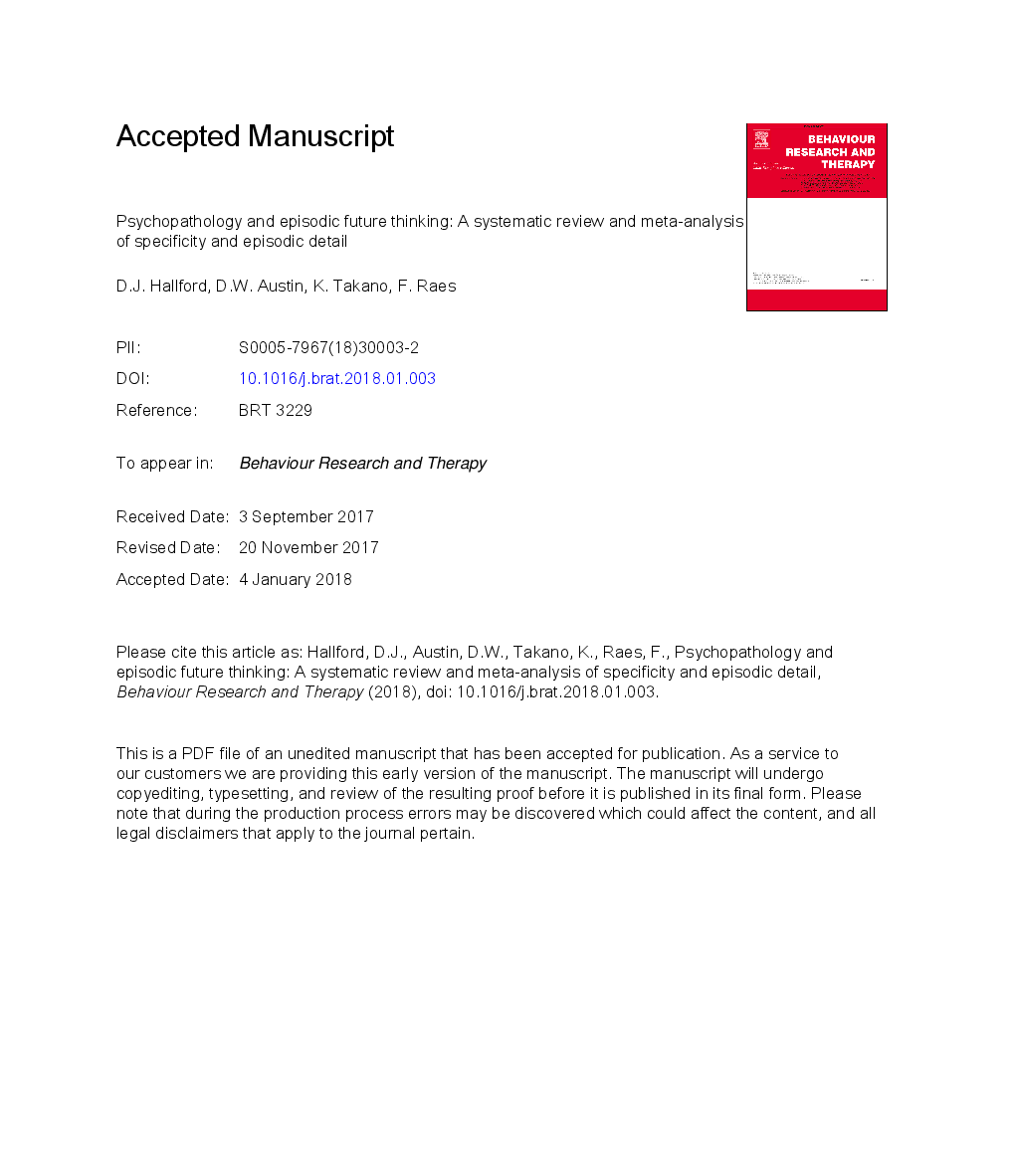ترجمه فارسی عنوان مقاله
روانپزشکی و تفکر آینده ای اپیزودیک: بررسی منظم و متا آنالیز ویژگی و جزئیات اپیزودیک
عنوان انگلیسی
Psychopathology and episodic future thinking: A systematic review and meta-analysis of specificity and episodic detail
| کد مقاله | سال انتشار | تعداد صفحات مقاله انگلیسی |
|---|---|---|
| 119441 | 2018 | 38 صفحه PDF |
منبع

Publisher : Elsevier - Science Direct (الزویر - ساینس دایرکت)
Journal : Behaviour Research and Therapy, Volume 102, March 2018, Pages 42-51
ترجمه کلمات کلیدی
تفکر آیندهپسودیک، روانپزشکی، جزئیات اپیزودیک، خاصیت اپیزودیک، خصوصیات حافظه خودکار،
کلمات کلیدی انگلیسی
Episodic future thinking; Psychopathology; Episodic detail; Episodic specificity; Autobiographical memory specificity;

